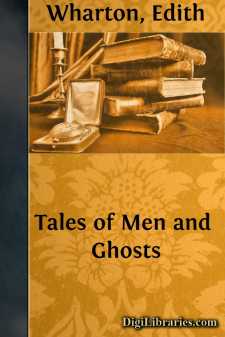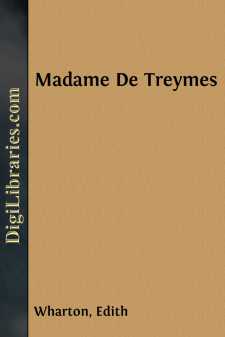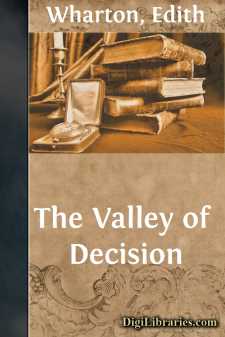Categories
- Antiques & Collectibles 13
- Architecture 36
- Art 48
- Bibles 22
- Biography & Autobiography 813
- Body, Mind & Spirit 138
- Business & Economics 28
- Children's Books 12
- Children's Fiction 9
- Computers 4
- Cooking 94
- Crafts & Hobbies 4
- Drama 346
- Education 46
- Family & Relationships 57
- Fiction 11821
- Games 19
- Gardening 17
- Health & Fitness 34
- History 1377
- House & Home 1
- Humor 147
- Juvenile Fiction 1873
- Juvenile Nonfiction 202
- Language Arts & Disciplines 88
- Law 16
- Literary Collections 686
- Literary Criticism 179
- Mathematics 13
- Medical 41
- Music 40
- Nature 179
- Non-Classifiable 1768
- Performing Arts 7
- Periodicals 1453
- Philosophy 64
- Photography 2
- Poetry 896
- Political Science 203
- Psychology 42
- Reference 154
- Religion 505
- Science 126
- Self-Help 81
- Social Science 81
- Sports & Recreation 34
- Study Aids 3
- Technology & Engineering 59
- Transportation 23
- Travel 463
- True Crime 29
Edith Wharton
Edith Wharton (1862-1937) was an American novelist and short story writer best known for her works exploring the lives and morals of the American upper class, including her Pulitzer Prize-winning novel "The Age of Innocence." Her writing style combined keen social observation with vivid, detailed prose, making her a significant literary figure of the early 20th century. Wharton was also an accomplished designer, traveler, and the first woman to win the Pulitzer Prize for Fiction.
Author's Books:
Sort by:
by:
Edith Wharton
"You ought to buy it," said my host; "it's just the place for a solitary-minded devil like you. And it would be rather worth while to own the most romantic house in Brittany. The present people are dead broke, and it's going for a song—you ought to buy it." It was not with the least idea of living up to the character my friend Lanrivain ascribed to me (as a matter of fact,...
more...
by:
Edith Wharton
"You ought to buy it," said my host; "its Just the place for a solitary-minded devil like you. And it would be rather worth while to own the most romantic house in Brittany. The present people are dead broke, and it's going for a song—you ought to buy it." It was not with the least idea of living up to the character my friend Lanrivain ascribed to me (as a matter of fact, under...
more...
by:
Edith Wharton
In the days when New York's traffic moved at the pace of the drooping horse-car, when society applauded Christine Nilsson at the Academy of Music and basked in the sunsets of the Hudson River School on the walls of the National Academy of Design, an inconspicuous shop with a single show-window was intimately and favourably known to the feminine population of the quarter bordering on Stuyvesant...
more...
by:
Edith Wharton
"WHAT'S become of the Daunt Diana? You mean to say you never heard the sequel?" Ringham Finney threw himself back into his chair with the smile of the collector who has a good thing to show. He knew he had a good listener, at any rate. I don't think much of Ringham's snuff-boxes, but his anecdotes are usually worth while. He's a psychologist astray among bibelots, and the...
more...
by:
Edith Wharton
I John Durham, while he waited for Madame de Malrive to draw on her gloves, stood in the hotel doorway looking out across the Rue de Rivoli at the afternoon brightness of the Tuileries gardens. His European visits were infrequent enough to have kept unimpaired the freshness of his eye, and he was always struck anew by the vast and consummately ordered spectacle of Paris: by its look of having been...
more...
by:
Edith Wharton
THE OLD ORDER. Prima che incontro alla festosa fronteI lugubri suoi lampi il ver baleni. 1.1. It was very still in the small neglected chapel. The noises of the farm came faintly through closed doors—voices shouting at the oxen in the lower fields, the querulous bark of the old house-dog, and Filomena's angry calls to the little white-faced foundling in the kitchen. The February day was closing,...
more...
by:
Edith Wharton
Mrs. Lidcote, as the huge menacing mass of New York defined itself far off across the waters, shrank back into her corner of the deck and sat listening with a kind of unreasoning terror to the steady onward drive of the screws. She had set out on the voyage quietly enough,—in what she called her "reasonable" mood,—but the week at sea had given her too much time to think of things and had...
more...
by:
Edith Wharton
"Oh, there IS one, of course, but you'll never know it." The assertion, laughingly flung out six months earlier in a bright June garden, came back to Mary Boyne with a sharp perception of its latent significance as she stood, in the December dusk, waiting for the lamps to be brought into the library. The words had been spoken by their friend Alida Stair, as they sat at tea on her lawn at...
more...
by:
Edith Wharton
THE MUSE'S TRAGEDY Danyers afterwards liked to fancy that he had recognized Mrs. Anerton at once; but that, of course, was absurd, since he had seen no portrait of her—she affected a strict anonymity, refusing even her photograph to the most privileged—and from Mrs. Memorall, whom he revered and cultivated as her friend, he had extracted but the one impressionist phrase: "Oh, well,...
more...
by:
Edith Wharton
It was last winter, after a twelve years' absence from New York, that I saw again, at one of the Jim Cumnors' dinners, my old friend Halston Merrick. The Cumnors' house is one of the few where, even after such a lapse of time, one can be sure of finding familiar faces and picking up old threads; where for a moment one can abandon one's self to the illusion that New York humanity is...
more...











